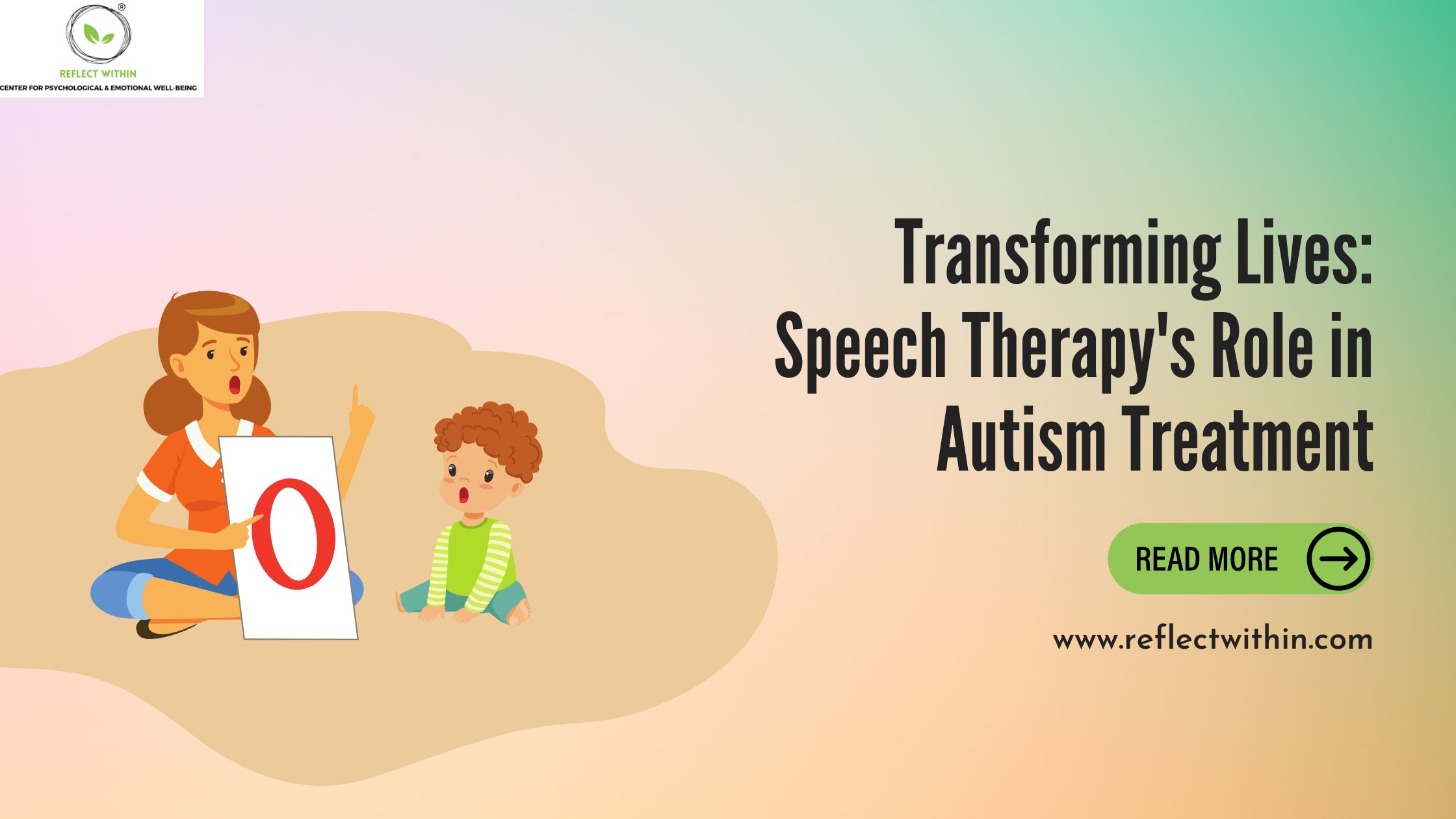Transforming Lives: Speech Therapy’s Role in Autism Treatment

Autism Spectrum Disorder (ASD) is a complex developmental condition marked by challenges with social interaction, communication, and repetitive behaviours. The disorder’s spectrum nature reflects the wide variety of symptoms and severity that Autism can present. Early detection and intervention are crucial to managing this condition, and one of the most effective treatments is speech therapy. This article delves into the role of speech therapy in managing Autism and how it can remarkably impact the lives of those affected by the condition.
Understanding Autism Spectrum Disorder (ASD)
Autism is a neurodevelopmental disorder that affects one in every 54 children in the U.S. It manifests through social-communication challenges, restricted interests, and repetitive behaviours. Each individual with Autism presents a unique array of symptoms, with differing severity levels, making ASD a truly spectrum disorder.
The Importance of Communication in Autism
ASD often severely impacts an individual’s communication abilities. This can range from complete non verbalism to struggles with social cues and nonliteral language. Communication is the cornerstone of human interaction, and these difficulties often lead to social isolation and frustration.
An Introduction to Speech Therapy
Speech therapy aims to address communication difficulties, from pronouncing words correctly to body language interpretation. Speech-Language Pathologists (SLPs) provide this therapy, using customised strategies to meet individual needs, and they play a crucial role in managing ASD.
The Role of Speech Therapy in Autism Treatment
For those with Autism, speech therapy goes beyond improving verbal communication. It also focuses on enhancing nonverbal cues, boosting social communication skills, and fostering self-expression. These skills can significantly improve an individual’s ability to form relationships, perform academically, and participate in society.
Techniques Used in Speech Therapy for Autism
Various techniques cater to different communication challenges. The Picture Exchange Communication System (PECS) aids nonverbal individuals in communicating through pictures. Social Stories and Comic Strip Conversations help understand social situations, while Video Modeling improves social and functional skills. Alternative Communication (AAC) and Augmentative devices, such as speech-generating devices, can assist those who struggle with spoken language.
The Impact of Speech Therapy on the Lives of Autistic Individuals
Numerous success stories and case studies underscore the effectiveness of speech therapy. Many individuals with Autism, previously unable to effectively communicate, have experienced significant improvements in their ability to express themselves and understand others. The exact results vary, but the positive impact is undeniably transformative for many.
How to Seek Speech Therapy for Autism
If a child exhibits communication difficulties or other Autism symptoms, it’s important to seek professional advice. Choosing a qualified SLP is crucial for effective speech therapy. Remember, progress may be slow, but consistent effort often leads to improvement.
Combining Speech Therapy with Other Autism Treatments
Speech therapy often works best in conjunction with other treatments like Occupational Therapy or Behavioral Therapy. A comprehensive, individualized treatment plan can address a range of challenges that individuals with Autism may face, contributing to an overall improved quality of life.
Conclusion
The role of speech therapy in Autism treatment is significant and often life-changing. It fosters a sense of independence and improves quality of life for many individuals living with Autism. While the journey may be challenging, the results can be profoundly rewarding. As we look towards the future of Autism treatment, the role of speech therapy remains critical.
For more information about Autism and speech therapy, consult reputable therapists online in India. Remember, you’re not alone, and help is always available.
Latest Post
Categories
Book Session

















